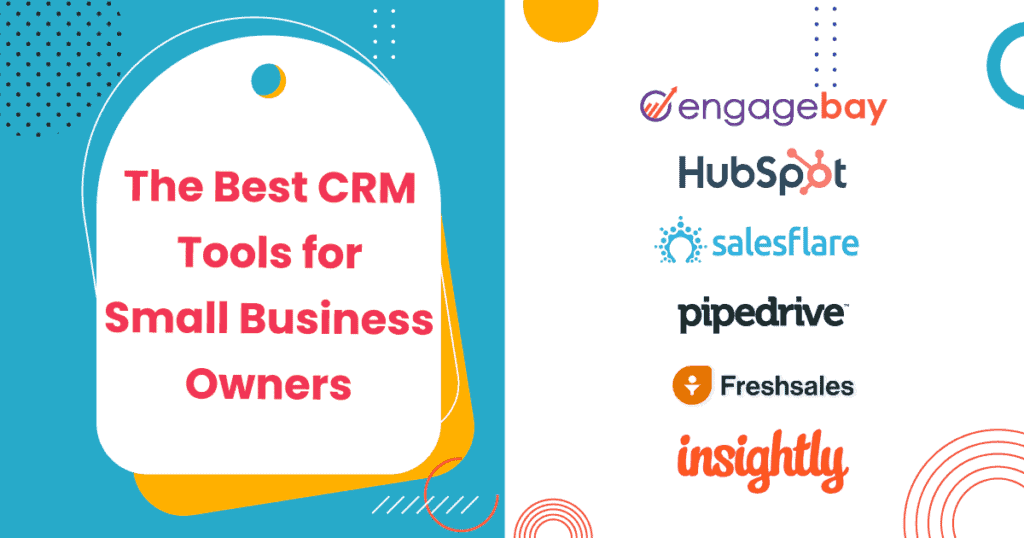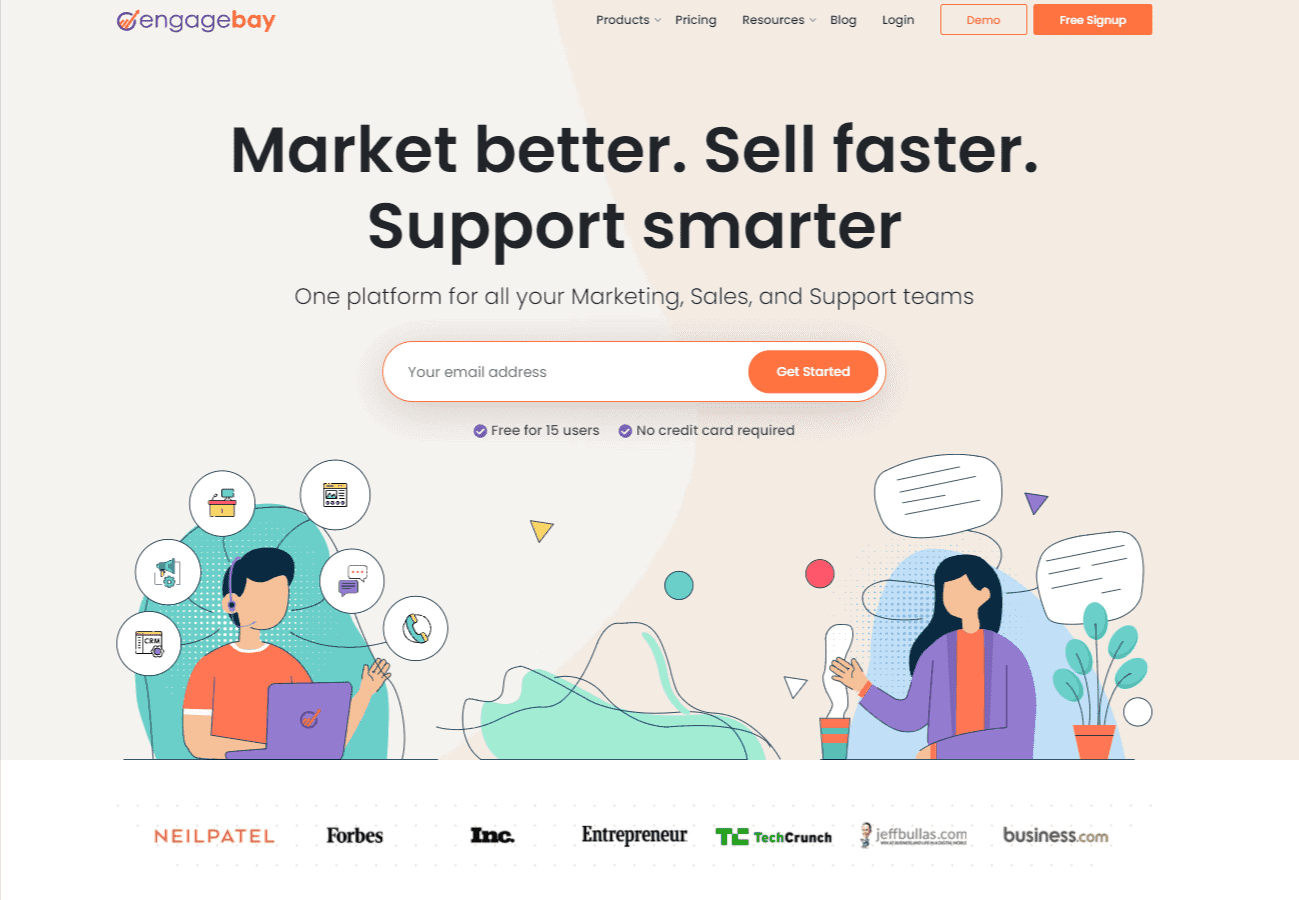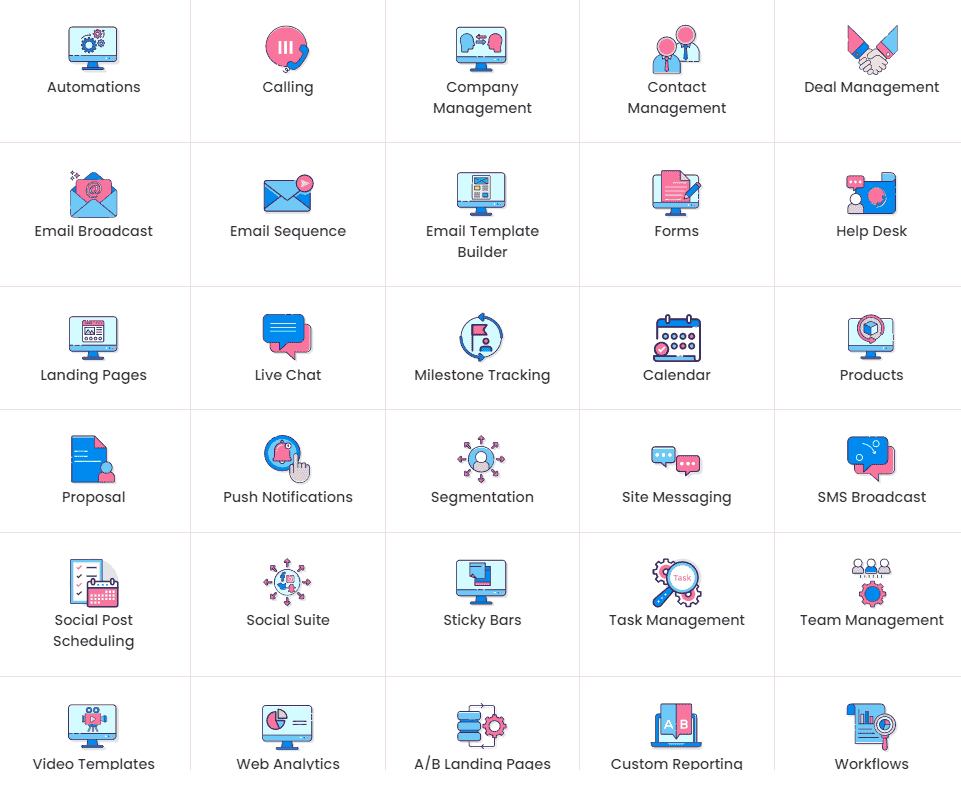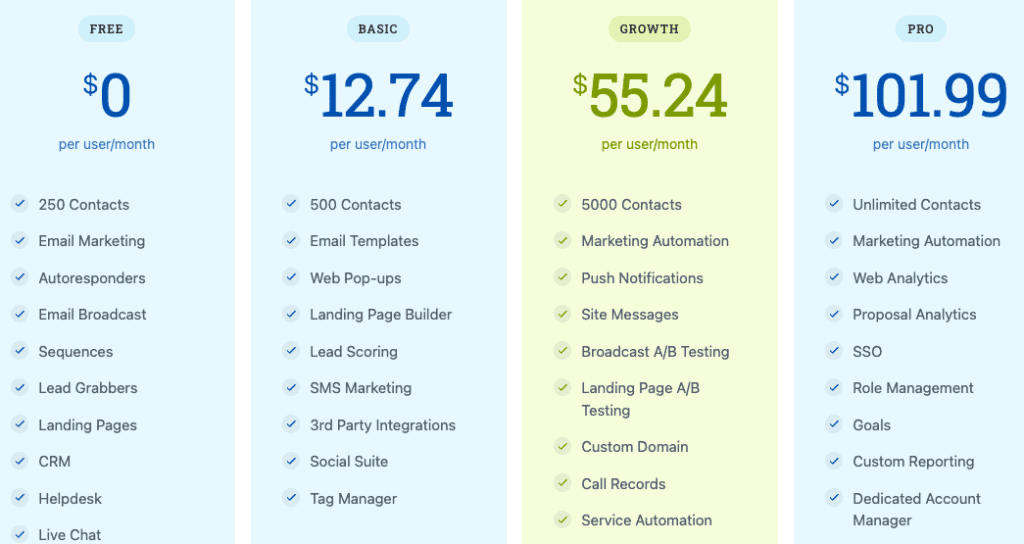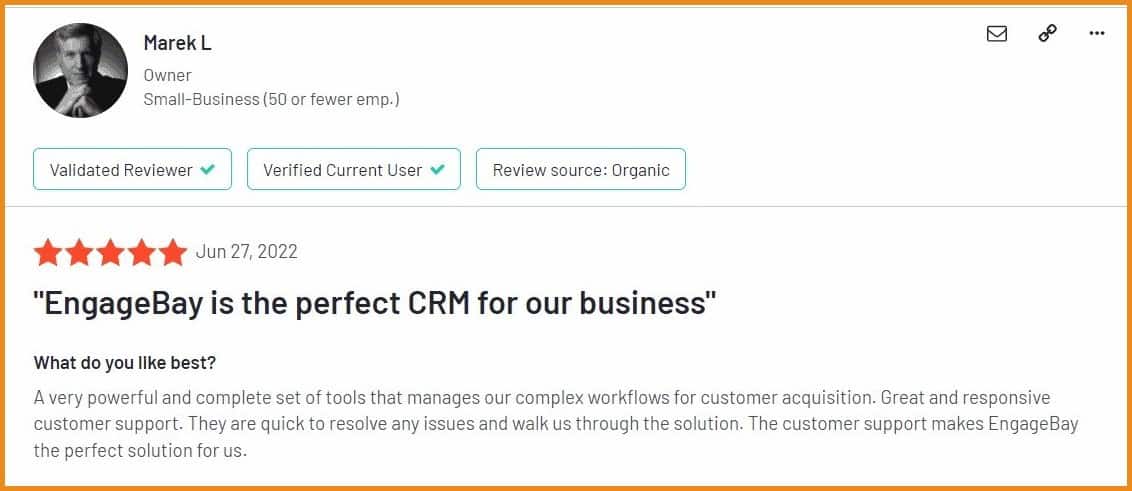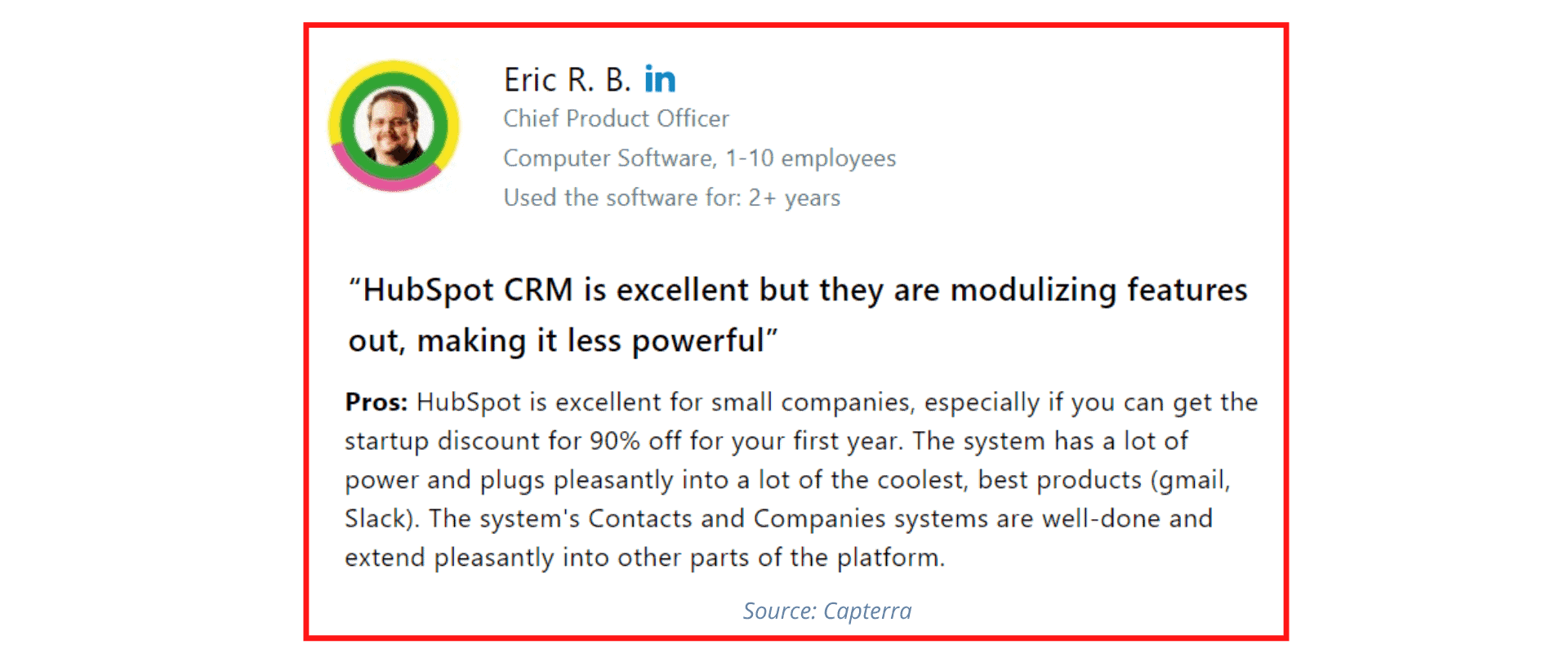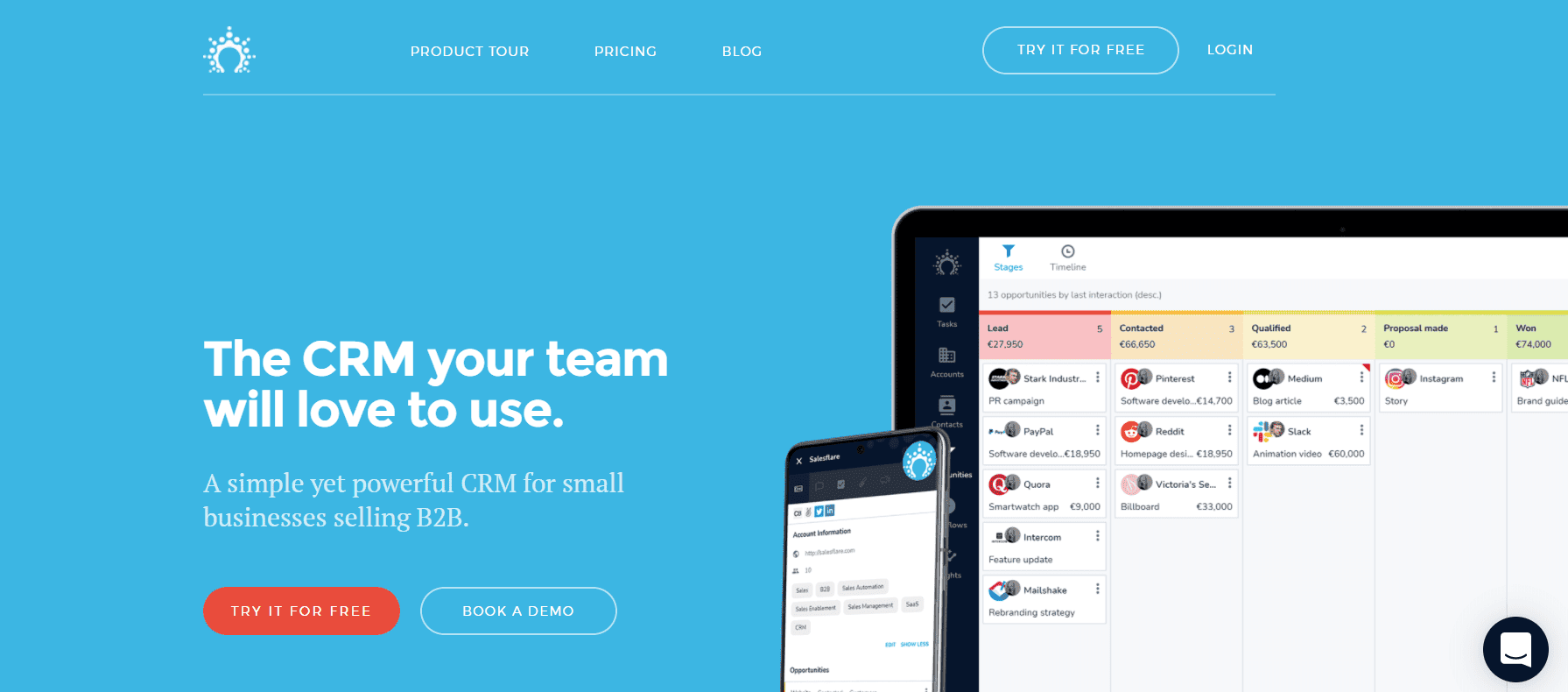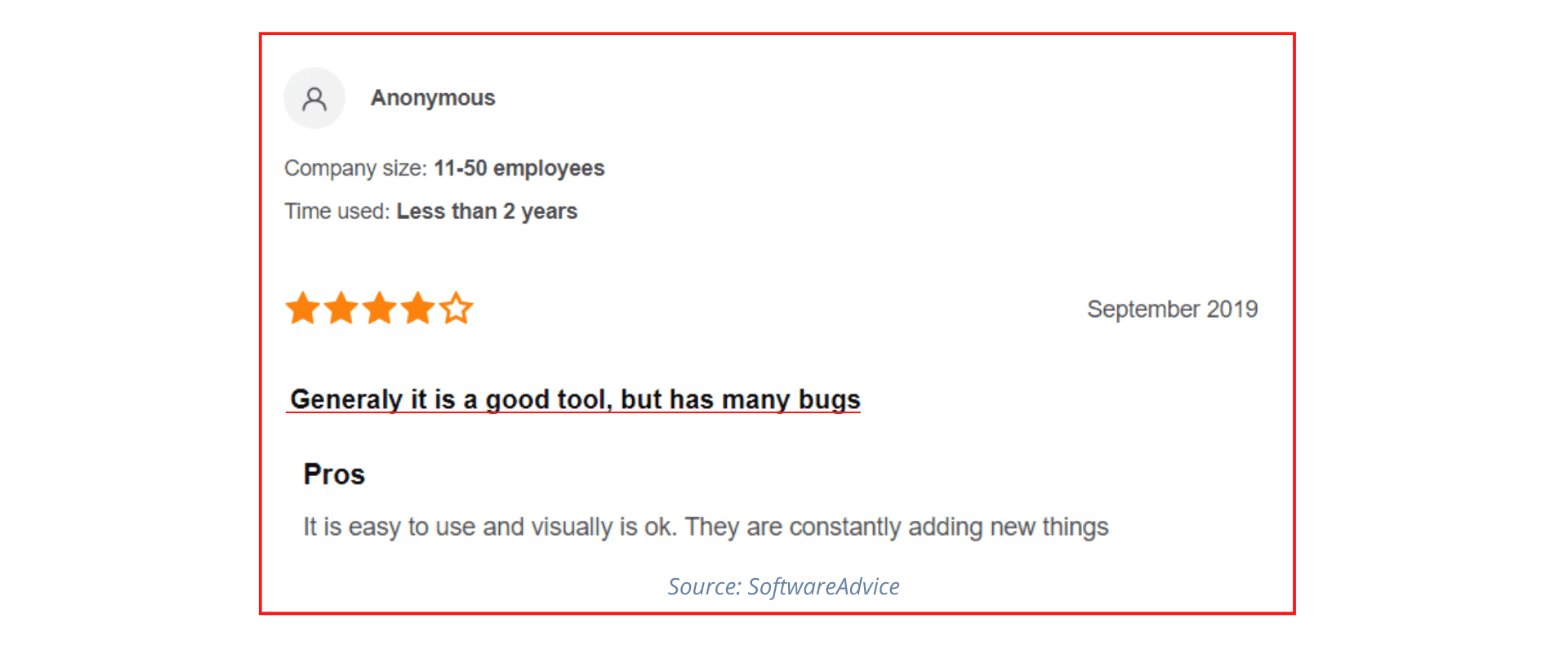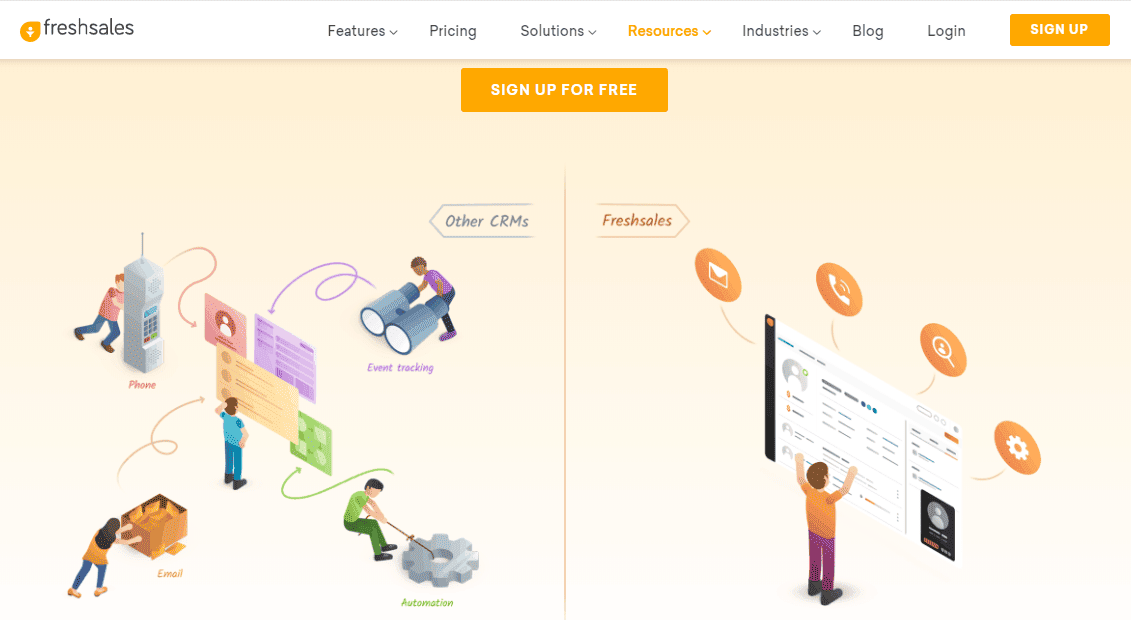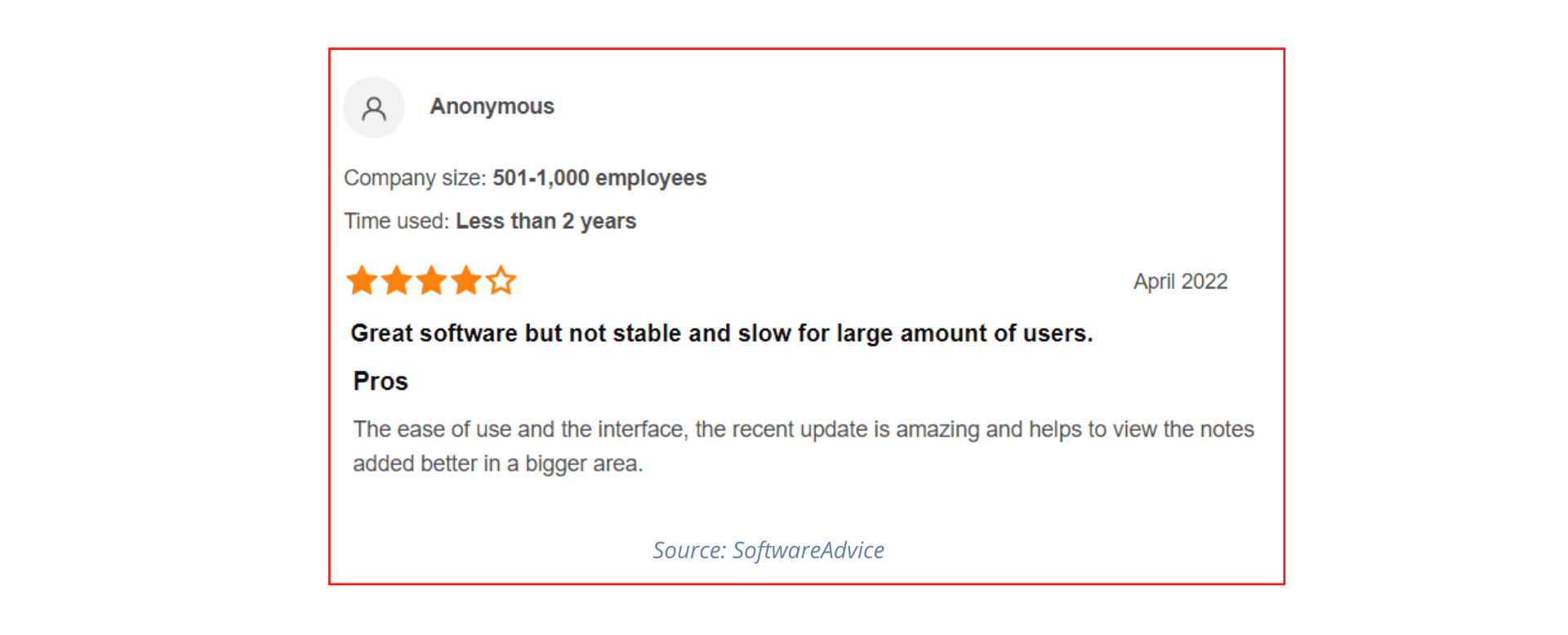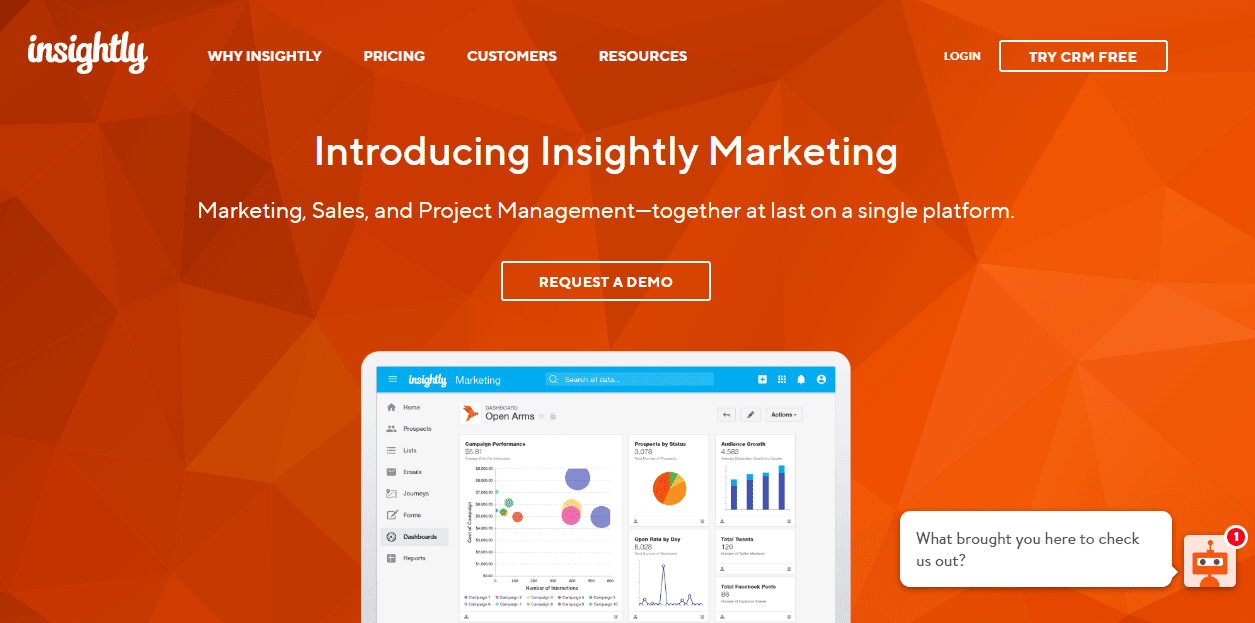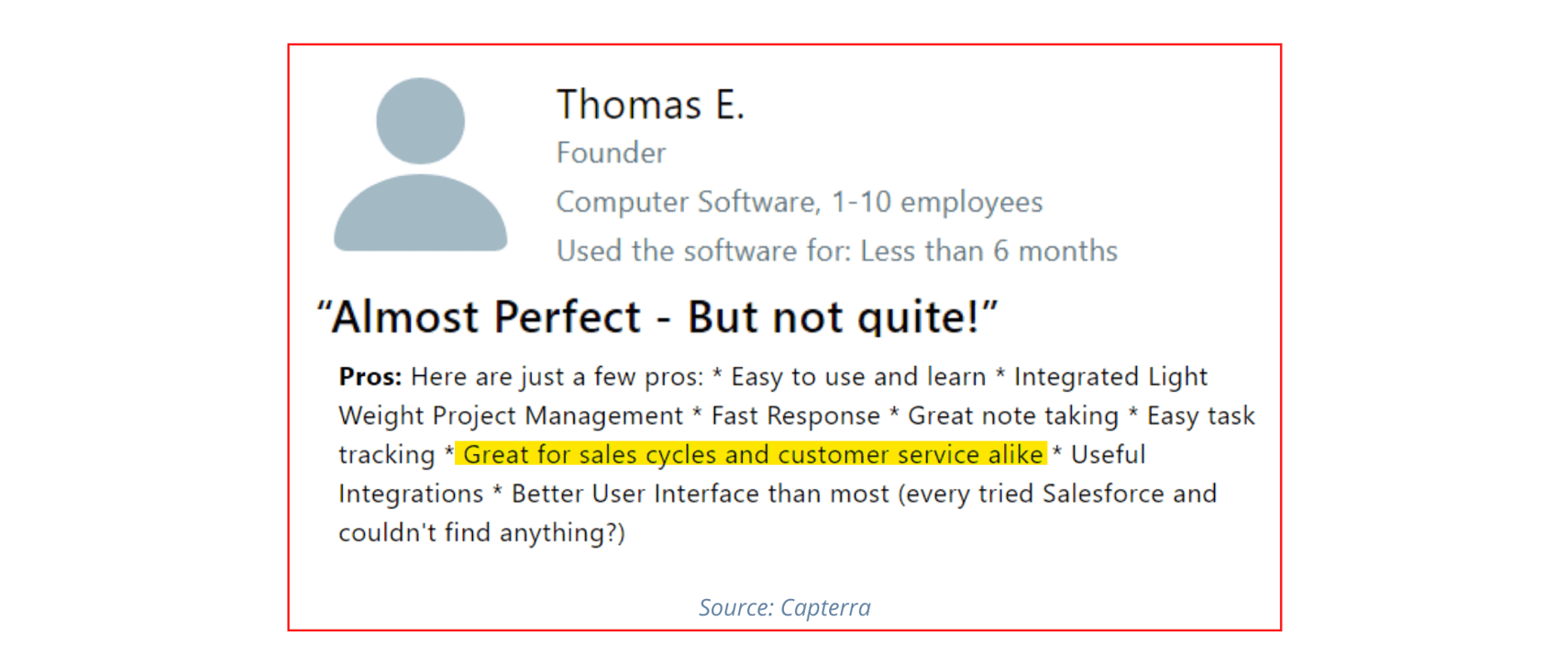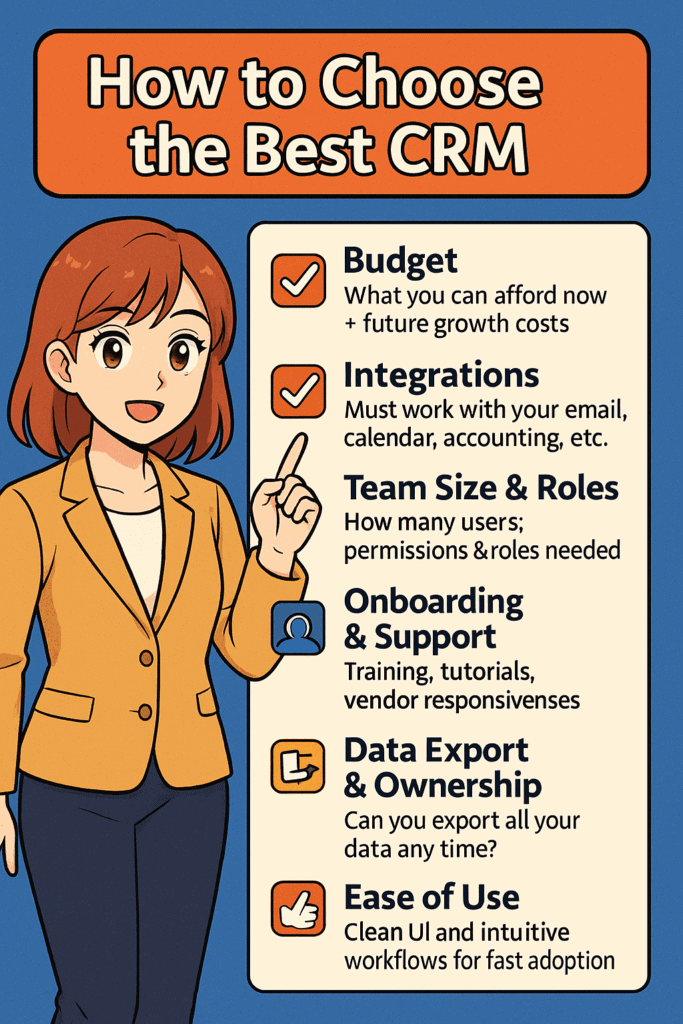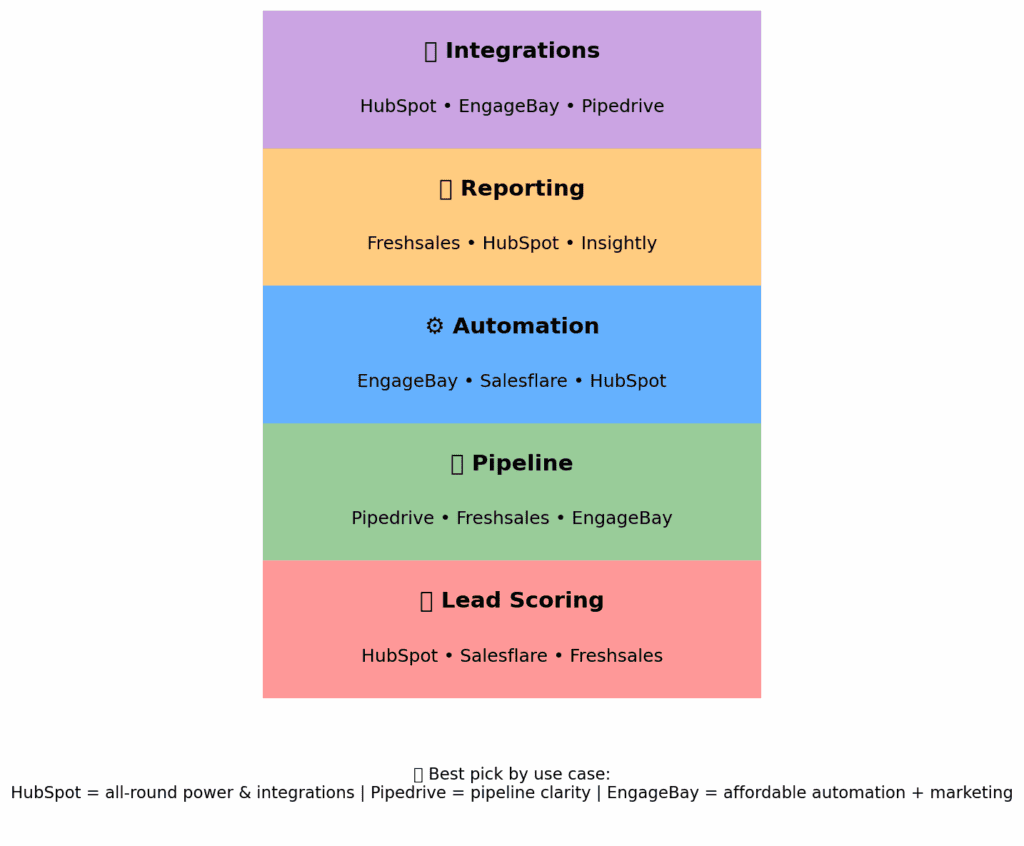You can still remember the first days your small business was in operation.
Those were scary times, wondering if you’d bring in enough revenue to stay afloat. Since then, months have passed, and your business is beginning to get its first real taste of success and growth.
With growth comes new customers, thus the need for customer relationship management or CRM software.
Manually performing tasks is no longer a viable option.
So what do you do?
Get a CRM software; it’s that easy.
But choosing one that suits your business needs and your budget? That’s the tricky part!
Fortunately, we have done the homework for you. In this blog post, we’ll show you the benefits of using a CRM software, how to choose appropriately, and the six best CRM tools for small businesses:
- EngageBay
- Hubspot
- Salesflare
- Pipedrive
- Freshsales
- Insightly
Let’s go!
| Tool | Free plan? | Best for | Starting price* |
|---|---|---|---|
| EngageBay | Yes (free-forever) | All-in-one affordable CRM for SMBs | $0 / $12.74 per user/mo (Basic plan) |
| HubSpot | Yes (free-forever) | Big ecosystem + scalability | $50/mo (Starter bundle) |
| Salesflare | Free trial only | B2B sales teams who want automation & simplicity | $29/mo (Growth plan) |
| Pipedrive | No | Pipeline-visual sales teams | $12.50/mo (Essential plan) |
| Freshsales | Yes (Sprout free plan) | Scalable, feature-rich CRM from the start | $12/user/mo (Blossom plan) |
| Insightly | No | Businesses needing project management + CRM workflows | $29/user/mo (Plus plan) |
Table of Contents
Why Do Small Businesses Need to Use CRM?
Before you read our reviews of the best CRM tools for small businesses, it might help to read a bit about why you need a small business CRM software in the first place.
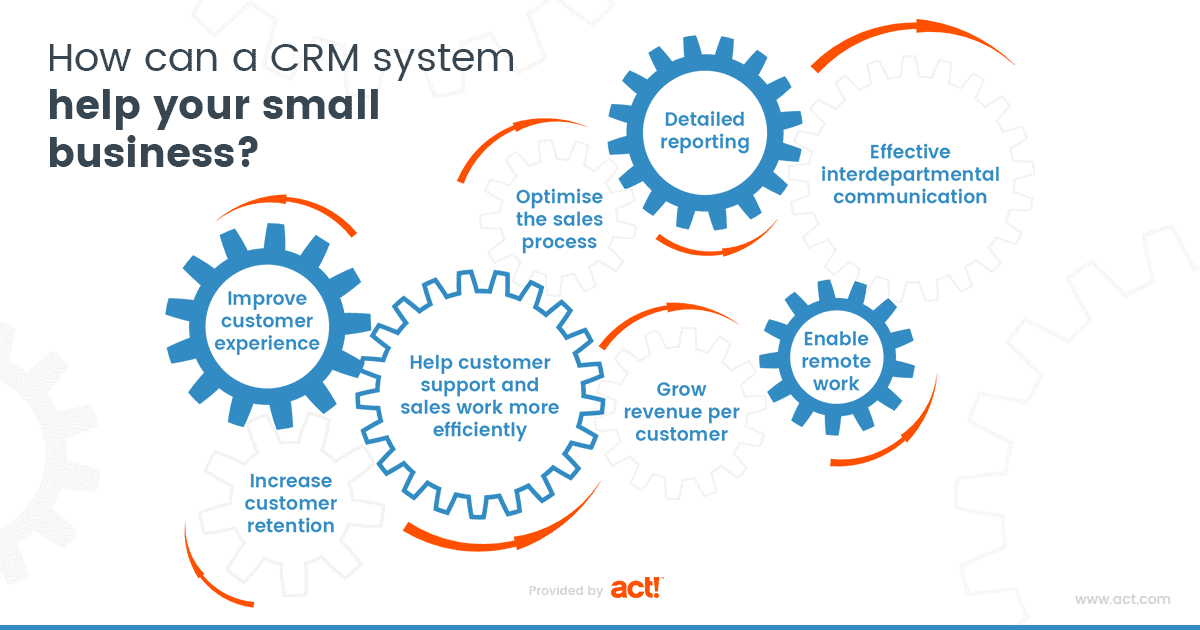
As your customer base grows, how will you keep track of everyone? If two members of your sales team are talking to Bob the customer, when you thought it was just one, that can be confusing to Bob. He may feel overwhelmed and decide to duck out, and you might lose a customer.
If you have 100 emails to send out to your customers, will you remember to follow up with the ones who responded to you yesterday? Or will those messages get buried in a deluge of incoming emails?
What you spend on a CRM solution now can come back to you in the form of qualified leads, retained customers, and more successful marketing and sales campaigns.
What about potential new customers? When a lead comes in, what do you know about them? How will you determine if they’re qualified? Having your sales team try to convert unqualified leads is a waste of everyone’s time.
That misspent time also chews into a salesperson’s day, leaving them with less time to dedicate to money-making tasks.
Can’t read a long blog post? This video says it all:
You need CRM for your small business for all those reasons and more.
Read also: 8 Best Sales CRM Tools for Tracking Lots of Leads
What Are the Benefits of CRM Software?
If you’re still not convinced that a small business CRM software is the best idea for your company, we think this next section will change your mind.
Here are some benefits that only companies with active CRM implementation enjoy.
A More Productive, Profitable Team
Trying to get all business tasks done without a CRM tool wastes a lot of time, as mentioned. Besides the issues mentioned above, your company may lose time in many other ways.
Perhaps the most time-consuming task companies invest in is manual customer data entry. Also, you don’t necessarily have all past customer data without CRM software, such as the history of interactions with a customer.
Your sales team is also missing detailed analytics that may predict future successes.
Time is money. Each minute your sales team spends doing anything but selling is costing your company lost revenue.
Small business owners who depend so much on every last cent of revenue can’t afford to take a careless approach.
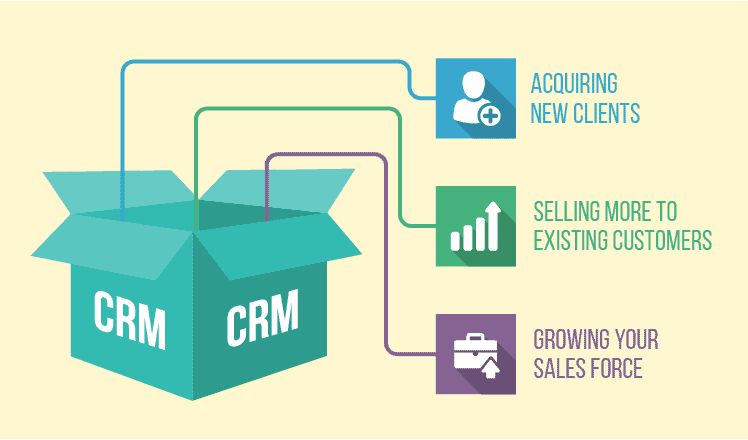
Read also: 5 Sales Planning Tools For Small Businesses to Grow Revenue Fast
Happier Customers
Customers like to feel understood. When your sales team can look at interaction records and learn what kind of sales approaches work (and which don’t), they can take a personalized approach to communications that any customer will appreciate.
Other little things, such as following up on time, add up. With CRM, you can keep your customers happier, so they stick around longer. This helps improve your customer lifetime value.
Read also: 15 Email CRM Software for Pro-Level Marketing in 2025
More Qualified Leads
Your small business may not struggle to get leads after a while, but what about qualified ones? Lead scoring systems offered by CRM software can determine which leads you should disqualify and which you must pursue.
Without a lead scoring system, you’re playing a guessing game.
That’s especially true if more than one member of your sales team filters leads without a CRM system, as they may not have the same criteria for what makes a good lead.
Once you switch to a CRM software, you can set the rules that qualify a lead and then stick with those rules. The software will filter the leads, so you know whether or not the leads are really interested in your products and services.
Read also: 15 Email CRM Software For Pro-Level Marketing In 2025
Reliable Sales Reporting and Predictions
How much money did your small business make in sales last month? What will that number look like in five months? Any small business CRM software offering reports and analytics tools will tell you the whole story.
Without that, you’re again guessing, but this time with your whole company riding on the results.
The customer data you have now will be useful years into the future as you go back and see how far along your small business has come.
The sooner you have that data readily available in a CRM software, the better off you’ll be.
Read also: 8 Reasons Why Every Small Business Needs an Easy-to-Use CRM Software
6 of The Best CRM Tools for Small Businesses
We’ve narrowed it down to six of the best CRM tools for small businesses on the market today.
To reiterate from the intro, these are EngageBay, HubSpot, Salesflare, Pipedrive, Freshsales, and Insightly.
In this section, we will go in-depth into each of your CRM options, exploring company history, features, integrations, and pricing.
We’ll even share some pros and cons so that you can make an informed decision.
#1. EngageBay
What Is It?
One of the best CRM software for small businesses is undoubtedly EngageBay.
Founded in 2017 by Sreedhar Ambati, EngageBay is an all-in-one marketing, sales, and customer support software with free integrated CRM.
Features
EngageBay breaks up its features into four products: the Service Bay, CRM & Sales Bay, Marketing Bay, and the All-in-One Suite.
Here’s a closer look at the features offered:
- No limit on users: No matter how many users you decide to add to your CRM, you never have to pay extra for it when you’re using EngageBay.
- Call integration: The CRM Telephony feature allows you to enhance your interactions with your customers by tracking conversations and interactions among customers and potential customers. You and your team can then look back on this info later and use it to plan future sales and business decisions.
- Lead scoring: To separate your would-be customers from those who aren’t interested, you need lead scoring. With EngageBay, you can determine your qualified leads to drive more sales and conversions.
- Email syncing: EngageBay allows you to integrate your email with the CRM software. With 2-way sync, you can access all your emails right from the platform and vice-versa.
- Gamification and leaderboards for the sales team: Few things motivate sales teams more than healthy competition. EngageBay lets you use both gamification and leaderboards to see who’s at the top of the game.
- Rich sales reporting: EngageBay’s sales reporting module presents rich data that you can customize to best suit your small business. Display metrics like growth, revenue, and leads converted in charts, bar graphs, and more.
- Automated data entry and meeting schedule: From call notes to emails and phone calls, you and your team don’t have to spend valuable time adding this data manually into your CRM platform. EngageBay automates data entry and countless other tasks for convenience and productivity, such as meeting scheduling.
- Workflows: All members of your small business sales team will stay on task with EngageBay’s workflows. These let your staff see what’s in progress and who needs following up, so no tasks are forgotten.
- HelpDesk and LiveChat: EngageBay offers a host of customer support tools, including a traditional ticketing system and LiveChat.
Read also: Top 5 Banking CRM Software — EngageBay, HubSpot, and More
Integrations
EngageBay offers dozens of popular integrations so that you can expand the functionalities of the platform by connecting with your favorite apps. CallHippo, Digioh, DocuSign, Quickbooks, Xero, Plivo, WooCommerce, BigCommerce, and Mandrill are some of the popular ones.
Pricing
As mentioned, EngageBay’s CRM is always free to use.
The free plan includes live chat, helpdesk, landing pages, and lead grabbers.
EngageBay is one of the best tools for small business establishments like yours as you can take advantage of sequences, email broadcasting, autoresponders, and email marketing to 500 contacts under the free plan as well. You also get a host of customer service tools.
You pay $12.74 a month (subscribed biennially) for 1,000 contacts by upgrading to the Basic Plan. Besides the above, you get additional features such as a tag manager, social suite, SMS marketing, lead scoring, landing page design, pop-ups, and email templates. You also get customer service tools like canned responses, ticket views and macros, and group management.
The Growth Plan for $55.24 a month lets you reach 50,000 contacts monthly. This plan also adds proposals, customer service automation, call records, and a custom domain. You can also use the landing page and broadcast A/B testing, site messages, push notifications, and marketing automation under the Growth plan.
For the small businesses requiring pro tools, the Pro plan at $101.99 a month should suit you. You can reach unlimited contacts and use all the features above. In addition, you gain phone support, uptime SLA, a dedicated account manager, and custom reporting. EngageBay offers phone customer support in its Pro plan.
Read also: 9 Amazing Marketing Automation CRM Software [Comparison Table]
Pros and Cons
To wrap up, here are our pros and cons for using EngageBay as your CRM tool of choice.
Pros
- EngageBay is always free, ideal for small businesses with a tight budget.
- The company was founded to serve startups and small businesses like yours.
- Super affordable alternative to HubSpot.
Cons
- Can add more integrations and templates.
Best for: SMBs wanting an all-in-one platform with marketing, sales & support at low cost
Top feature: Lead scoring + automation + unlimited users on free plan
Verdict: A highly affordable, feature-rich CRM that gives small businesses strong value without hidden charges.
Read also: Can Your Small Business Survive Without CRM? Think Again!
#2. HubSpot
What Is It?
HubSpot is one of the best CRM software for larger establishments with more significant marketing funds.
Founded in 2006 by Dharmesh Shah and Brian Halligan, it’s fair to say HubSpot is a popular CRM option on the market. Although their CRM-related products are costly, HubSpot’s CRM is actually free for everyone to use.
Features
Here’s a closer look at the features your small business could utilize with HubSpot CRM:
- Live Chat: Answer lead and customer queries anytime they pop up with live chat. You may even rely on a bot to take care of this duty when your staff isn’t in the office.
- Scheduling meetings: Just as you can with EngageBay’s free CRM, HubSpot also lets your customers schedule meetings with you automatically. Just confirm if the meeting works for your schedule, and it’s set!
- Tracking prospects: Learn more about the leads that could become customers with Hubspot CRM prospect tracking.
- Pipeline management: HubSpot’s reporting dashboard keeps all members of your sales team on the same page while also offering essential metrics. This includes features such as deal tracking and insights.
Read also: Top 5 HubSpot Competitors For The Cost-Conscious (Pricing, Features)
Integrations
HubSpot CRM integrates with many of the tools and apps you use every day to drive your small business. Some of these are:
- Wistia
- Databox
- Seventh Sense
- Zerys
- PandaDoc
Pricing
To reiterate, you won’t pay for HubSpot’s CRM. However, to make the most of HubSpot requires buying their paid plans.
The Marketing Hub, Sales Hub, and Service Hub have three plans. The Starter plan costs $50 a month or $600 a year and gives you 1,000 contacts. For 10,000 contacts, you pay $440 per month.
The Professional plan is $890 a month, or $9,600 a year for 1,000 contacts. Pricing shoots up to $1,890 a month if you need 20,000 contacts.
If you want HubSpot’s most all-encompassing plan, that’s the Enterprise plan at $3,200 a month for 10,000 contacts. Let’s say your customer base has expanded, and you have around 100,000 contacts. This will cost you a whopping $4,050 a month.
Compare this with EngageBay’s Pro plan that costs $101.99 a month and even offers unlimited contacts, and you’ll know why EngageBay is the best CRM software for small businesses.
Pros and Cons
Let’s talk about HubSpot’s pros and cons to wrap up.
Pros
- HubSpot’s CRM is free.
- You get a number of features with this CRM tool even though you’re not paying for it.
- HubSpot is a popular name in sales and marketing software.
Cons
- Its CRM is the only free feature HubSpot offers. To use any of its other products and services, you’d have to pay.
- HubSpot is too expensive for small businesses and startups.
Best for: Companies that want scale, prestige, and a broad ecosystem of tools & integrations
Top feature: Free CRM core + ability to upgrade into powerful Sales, Marketing & Service Hubs
Verdict: Very robust and trusted, but costs jump steeply once you need more than just the free basics.
Read also: 9 CRM Best Practices for Small to Large-scale Businesses
#3. Salesflare
What is it?
Salesflare is a great sales CRM for small businesses who sell B2B and want to better follow up their leads. It automates most of the data input you normally have to do to track your leads well, and on top of that it’s super easy to use.
Salesflare was founded in 2014 and is a popular challenger in the small business CRM market, ranked #2 easiest-to-use CRM and #1 easiest-to-setup CRM by real reviewers on G2.
Features
Here are some of the top features you’ll get when using Salesflare:
- Automatically enriched company & contact data: Start typing the name of a company, then click the right search result. Salesflare takes it from there by prefilling the company profile with publicly available info.
- Built-in email sequences: Send personalized and automated emails at scale using Salesflare’s email workflows. And then track who opens, clicks, replies, bounces, … and who met the goal you defined. You can do it straight from Salesflare, without having to juggle with spreadsheets and integrations.
- LinkedIn sidebar: Add new contacts and accounts directly into Salesflare, enriched with the latest data from LinkedIn. Manage your communications in one place, add tags that trigger automatic email sequences, and collaborate with your team to stay on top of your outreach.
- Visual, drag-and-drop sales pipelines: Create a clear overview of your sales pipeline, quickly update it, and track progress. You can create as many pipelines as you like.
- Email signature sync: Stop copy-pasting information from email signatures into your CRM. Salesflare automatically detects and interprets signatures to update your contacts.
- Email & website tracking: Know how your customers are interacting with your emails and what they’re reading on your website. Track emails sent from Gmail, Outlook and Salesflare.
- Automated reminders: Never forget to follow up with a customer, answer an email, or enter meeting notes. Salesflare can automatically remind you.
Read also: 7 Simple CRM Tools for Every Business Reviewed
Integrations
Salesflare integrates closely with many of the tools you’re using already:
- Gmail & Office 365
- Slack
- Trello
- Mailchimp
Pricing
Salesflare has a relatively simple pricing structure, with 3 different plans that have the usual annual and monthly pricing.
Actually, most of the features are included in its Growth plan at $29 per month.
If you also want to send email sequences, customize the permissions, or create custom reporting, then you can opt for the Pro plan at $49 per month.
Finally, the Enterprise plan, with custom training and onboarding (and unlimited email finder credits!) comes in at $99 per month.
Pros and Cons
Here are some pros and cons of Salesflare.
Pros
- It’s really easy, quick and fun to set up.
- Salesflare integrates really closely with your Gmail, Office 365 and LinkedIn.
- The mobile app is not some limited version. It has 100% of the functionality.
Cons
- It offers a free trial, but no permanently free version.
Best for: B2B teams that want to reduce manual work & streamline lead follow-ups
Top feature: Automated contact & company data enrichment + email sequences
Verdict: Extremely easy to use and excellent for automation; might lack some heavy-duty features larger teams need.
Read also: 5 of the Best GetResponse Alternatives (Features, Pricing)
#4. Pipedrive
What Is It?
Pipedrive is another excellent CRM tool for small businesses. It specializes in pipeline management and sales CRM. Pipedrive was founded in 2010 and is a popular brand in its niche today.
Features
Here’s a list of some of the features Pipedrive offers:
- Advanced reporting: Pipedrive’s advanced reporting feature shows you a variety of metrics and KPIs. These include deal stage conversions, lost and won deals, conversion rates, scheduled activities, completed activities, and more. You can even use the reporting feature for predictive forecasting.
- Sales data syncing: The Pipedrive dashboard syncs all your customer data in one place. The dashboard also allows you to write and send emails, add and edit customer notes, and import contacts.
- Mobile use: The mobile app allows you to stay on top of leads and customers in the sales pipeline, even while you’re on the move.
- Visual sales pipeline: Pipedrive’s drag and drop features for pipeline stage movement help you visually track customer stages to keep the pipeline moving seamlessly.
- Automations and reminders: Marketing automation features and reminders help you follow up quickly. You can sync to Google Calendar through Pipedrive and request activity reminders when you need them.
Read also: Pipedrive Alternatives — 5 CRM Tools To Supercharge Your Sales Teams
Integrations
Looking to integrate with Pipedrive? You’re in luck. Some of their integrations are:
- Slack
- Asana
- Trello
- Google Maps
- Toky
Pricing
Since you can’t use Pipedrive’s CRM tool for free, you’ll have to choose among one of their four plans.
The first of these, the Essential plan, is an affordable $12.50 a month. If you need more features like marketing automation and lead tracking, try the Advanced plan for $24.90 a month.
Pipedrive’s Professional plan is their recommended option at $49.90 a month. You can also opt for the Enterprise plan at $99 a month with custom support and onboarding.
Pros and Cons
Here are some pros and cons of Pipedrive.
Pros
- Lots of features to make sales easier.
- The mobile feature is convenient for fieldwork.
Cons
- Does not offer a free version.
Best for: Sales-led teams with deal pipelines who want visual clarity and forecasting
Top feature: Visual pipeline + advanced reporting + reminders & mobile pipeline updates
Verdict: Very strong choice for pipeline management; not the cheapest when you need many features beyond sales tracking.
Read also: 9 Best CRM Tools for Architecture Firms
#5. Freshsales
What Is It?
The fourth CRM tool we recommend for small businesses is Freshsales. In 2010, Shan Krishnasamy and Girish Mathrubootham created Freshworks, and Freshsales is a subset of the platform.
Features
Freshsales’ CRM includes the following features:
- Mobile integration: Through Freshsales’ mobile features, you can schedule appointments, receive push notifications, and add voice notes.
- Detailed reporting: You get sales activity reports, revenue analytics, trendline reports, sales velocity reports, and visual sales reports. These are all customizable.
- Pipeline module: Within the Freshsales pipeline are features such as adjustable sales goals, deals displayed in a list view, stage probabilities, multiple deals, and deal age.
- Automated tasks: Freshsales offers automated lead assigning, call logging, and workflows.
- Lead scoring: Lead scoring and auto-profile enrichment are also available.
Integrations
If your small business has already spent money on other tools, apps, and software, Freshsales may integrate with them. Here are some of your integration options:
- Shopify
- Trello
- 3CX
- Revv
- Survicate
Pricing
Freshsales names its five plans after the stages of a flower growing. If your small business is a little tight on funds, you might opt for the Sprout plan, which is free but with limited features.
The Blossom plan starts at $12 per month per user when billed annually. You gain API access, marketplace apps, integrations, SMS, and lead scoring. You can also use Freshsale’s two-way email syncing, visual sale pipeline, and deal management.
As you grow, you can opt for the Garden plan. It’s $25 per month per user if you’re billed annually. You get all the Blossom plan features and advanced reports, lead assignments, 10 teams, 10 workflow automations, five sales sequences for each user, and 250 bulk emails a day.
The Estate plan accommodates bigger teams for $49 per month per user when billed annually. You can now work with 25 teams, 25 workflow automations, 10 sales sequences, and 1,000 bulk emails. You also get advanced CRM customization, sales goals, event tracking, smart forms, a reports dashboard, and auto profile enrichment.
If you must have all the features Freshsales’ CRM software offers, you need the Forest plan for enterprise-level businesses. This costs $79 per month per user. You get all the above features and a dedicated account manager, audit logs, IP whitelisting, and an EEA data center.
Pros and Cons
If you’re pondering whether to use Freshsales, check out these pros and cons.
Pros
- Deep dive into your small business analytics.
- The sales pipeline has filters so you can prioritize which information matters most.
- Has a startup plan that is free to use.
Cons
- Not many pricing options for small businesses.
Best for: Businesses needing deep analytics, goal tracking and scalable workflows from early stages
Top feature: Customizable pipelines, detailed reports, lead scoring & automated task workflows
Verdict: Great analytical depth, especially as teams grow; free version is there, but fuller power comes at paid tiers.
Read also: 11 Best Marketing Automation Tools for Small Businesses
#6. Insightly
What Is It?
The last CRM software we want to talk about is Insightly.
This company started in San Francisco in 2009 and has experienced substantial growth since. Many industries use Insightly, including technology, nonprofits, advertising, media, consulting, and manufacturing.
Features
Here’s an overview of Insightly’s features:
- Socially connected: By adding your business email address, you can sync to various social networks using Insightly, including LinkedIn, Google+, Facebook, and Twitter.
- Mobile accessibility: You can stay connected with your team anywhere, anytime.
- Pipeline activity: You can track milestones, active tasks and produce opportunity reports to see where your pipeline should go in the future.
- Holistic contact view: You can look at a customer’s contact details, background, and history of interactions with them — thus improving customer relations and streamlining the sales process.
Read also: CRM Functionality — 12 Growth Hacking Ideas a Small Business Needs
Integrations
Insightly CRM enhances many of the other tools you use. That’s why Insightly integrates with several other apps and software. Here are some of them:
- RingCentral
- CircleLoop
- PieSync
- Everhour
- Kixie
Pricing
Insightly has three CRM pricing plans. The Plus plan starts at $29 per user per month and includes cross-company collaborations, project delivery, and multi-device use.
Next is the Professional plan at $49 per user per month. With this plan, you get the above features and business intelligence platform access, Insightly Voice, opportunity management, contact management, sales team assignments, mass emailing, and lead management.
The Enterprise plan at $99 per month per user gives you the most features, including API support, workflow automations, customized reporting, and unlimited permissions.
Pros and Cons
Like any CRM tool, Insightly has its pros and cons.
Pros
- Lots of integrations.
- Social suite for sales campaigns.
Cons
- Not very affordable for small businesses.
Best for: Organizations needing CRM + project/task-based workflows, holistic contact views
Top feature: Contact background/history + opportunity/project tracking + solid integrations
Verdict: Strong all-round CRM with project features, though a bit more expensive proportionally for small teams.
Read also: Insightly vs Hubspot vs EngageBay — Find Out Which CRM Is Best For You
Best CRM Tools — Quick Comparison
Here are three micro-insights based on EngageBay’s roundup of the top CRM tools for small businesses:
-
EngageBay — Offers an all-in-one CRM solution that’s almost tailor-made for SMBs, with features ranging from marketing automation to customer support, and generous free plan allowances.
-
HubSpot — A strong name with deep integrations and a popular free CRM, but the true value lies in their paid Hub bundles, which quickly become costly for growing contacts and advanced tools.
-
Salesflare — Prioritizes automation and user-friendly setup, ideal for B2B teams wanting intelligent contact enrichment and outreach workflows with minimal effort.
How to Choose the Best CRM Software for Your Small Business
We just presented five amazing Customer Relationship Management platforms.
As you debate which of the five options would be the best match, we ask you to consider some factors. Following this guide will prevent you from falling into annoying CRM traps.
Features
What features matter to you most in a CRM system?
Perhaps it’s pipeline management, cloud-based client management, contact profiles, or lead scoring. We recommend you brainstorm with your key staff about the features your CRM software must have.
Then, it’s just a matter of narrowing it down to which software has all those features.
Price
As a small business still learning ways to drive a profit consistently, you must keep the cost of your CRM platform at the forefront.
If you’re pinching pennies, the good news is you can use such CRM tools as HubSpot, Freshsales, and EngageBay for free forever.
If you can afford to pay a little more for your CRM software, those three platforms, as well as Insightly and Pipedrive, offer several pricing plans for advanced features and heavy use.
Read also: How Much Does CRM Cost?
Integrations
How easily your CRM platform integrates with the other tools, apps, and software you use every day is important.
Instead of wasting time logging into one CRM tool and then another, you can sync them. You also save time porting over contacts, call logs, past sales records, and other vital data.
You can also select the CRM software that integrates with the tools you use the most often.

Ease of Use
You certainly want a CRM system that’s relatively easy to learn.
If your CRM of choice doesn’t have a free plan, take advantage of a free trial so that you can get a feel for it. If you and your fellow staff struggle to get the basics down, that CRM software likely isn’t for you.
Customer Relationship Management (CRM) solutions with customization are especially worth considering, as you can tailor your sales and marketing approaches to your changing needs.
Read more: 8 Reasons Why Every Small Business Needs and Easy-to-Use CRM Software
Conclusion
You should not wait until you become a large enterprise before choosing a small business CRM software.
We hope we’ve shown you the immense benefits of using a CRM software for your business. The six platforms mentioned in this blog post are great for SMBs and startups.
That said, we recommend EngageBay the most.
Why?
Because EngageBay was built with businesses like yours in mind. We offer highly affordable plans with no hidden charges or sliding-scale models. That’s because we want you to focus on growing your company without having to worry about budget constraints.
Lauraine M, founder and director of a financial services company, talks about how EngageBay helped her business grow:
Try EngageBay free for 15 users — No credit card. [Try Now]
Keep growing!
Increased productivity, happier customers, more qualified leads, and reliable sales reporting & forecasts.
EngageBay, HubSpot, and Freshsales all offer free tiers/forever-free options.
Key features include pipeline management, contact & lead scoring, integrations, customizable workflows, and ease of use.
EngageBay tends to offer more contacts/features for lower cost at higher tiers compared to others.
Cost increases are steep when scaling up contacts or needing advanced features; free plans often have strict limitations.
